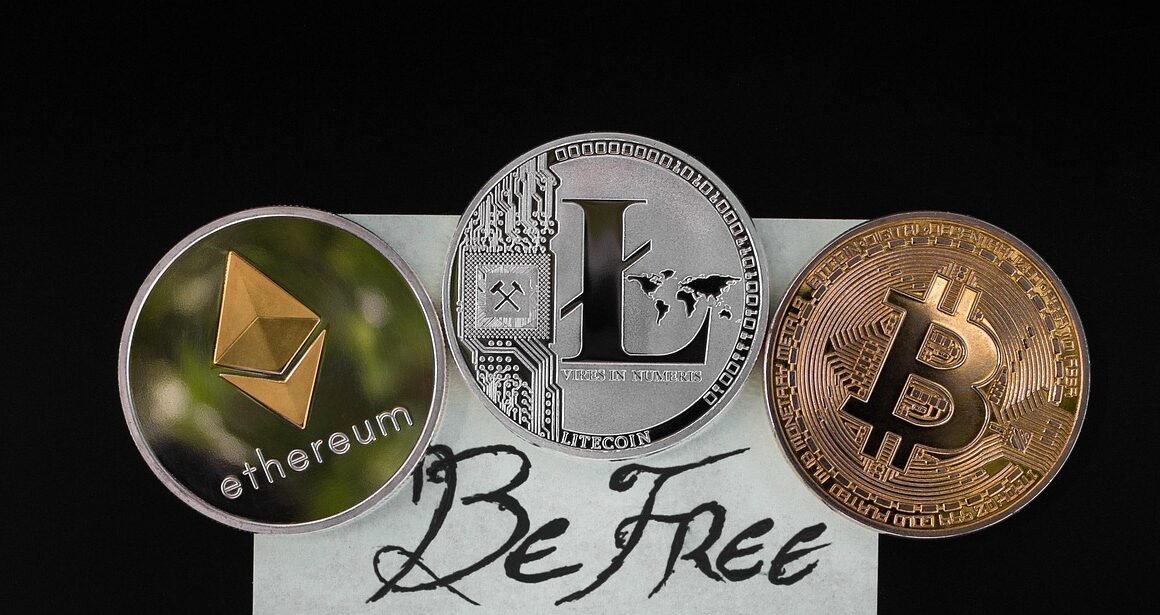Initial Coin Offerings (ICOs) burst onto the scene as a revolutionary fundraising method, offering a glimpse into a decentralized future of finance. Promising direct access to capital and a chance to get in on the ground floor of innovative projects, ICOs captivated investors and entrepreneurs alike. However, along with the excitement came risks and regulatory hurdles, making it crucial to understand the intricacies of this unique fundraising model. This blog post will delve into the world of ICOs, exploring their mechanics, benefits, risks, and the regulatory landscape.
What is an ICO?
Defining an Initial Coin Offering
An Initial Coin Offering (ICO) is a fundraising method where a company or project sells cryptocurrency tokens to investors in exchange for established cryptocurrencies like Bitcoin (BTC) or Ether (ETH), or sometimes even fiat currency. These tokens typically represent a share in the project, access to a specific service within the project’s ecosystem, or some other form of utility. Think of it like a crowdfunding campaign, but instead of receiving a product or equity, you receive digital tokens.
- The project publishes a whitepaper detailing its goals, technology, team, and tokenomics (the economics of the token).
- Investors purchase the tokens, hoping their value will increase as the project develops and gains adoption.
- The funds raised are used to develop the project and achieve its stated goals.
How ICOs Differ from Traditional Fundraising
ICOs differ significantly from traditional fundraising methods like Venture Capital (VC) or Initial Public Offerings (IPOs). Here’s a comparison:
- Accessibility: ICOs are typically more accessible to a wider range of investors, often with lower investment minimums.
- Regulation: The regulatory landscape for ICOs is often less defined than for IPOs, which are heavily regulated. This can present both opportunities and risks.
- Liquidity: ICO tokens can often be traded on cryptocurrency exchanges relatively quickly after the ICO, providing liquidity for investors. This isn’t always the case with private equity in VC funds.
- Control: Investors in ICOs typically have limited voting rights or control over the project’s direction compared to equity shareholders in traditional companies.
- Due Diligence: Due diligence requirements for ICOs are often less stringent than for traditional fundraising, increasing the risk of scams and poorly executed projects.
- Example: Consider a project developing a decentralized social media platform. They might launch an ICO to raise funds for development. Investors who believe in the project’s vision can purchase the project’s tokens. These tokens might grant access to premium features on the platform, reward users for content creation, or give holders voting rights on certain platform decisions.
Benefits of Launching an ICO
Access to Global Capital
One of the biggest advantages of ICOs is access to a global pool of investors. Projects can attract funding from individuals and organizations worldwide, bypassing traditional geographic limitations.
- Bypass geographical restrictions: Reaching investors globally without needing local presence in each region.
- Faster fundraising: ICOs can often raise significant capital more quickly than traditional methods.
Community Building and Engagement
ICOs can foster a strong community around a project. Token holders often become passionate advocates and users, contributing to the project’s success.
- Early Adopters: ICOs attract early adopters who are invested in the project’s success.
- Network Effects: A strong community can create network effects, driving adoption and growth.
Decentralized Governance
Token holders can participate in the governance of the project, influencing its direction and development.
- Voting Rights: Tokens can grant voting rights on key project decisions.
- Transparency: ICOs can promote transparency by making project information publicly available.
- Actionable Takeaway: If you’re considering launching an ICO, prioritize community building. Engage with potential investors on social media, answer their questions, and build trust. A strong community can be a powerful asset.
Risks and Challenges of Investing in ICOs
High Volatility and Risk of Scams
ICOs are inherently risky investments. The cryptocurrency market is volatile, and many ICO projects fail to deliver on their promises. Furthermore, scams and fraudulent ICOs are prevalent.
- Lack of Regulation: The lack of clear regulation allows fraudulent schemes to flourish.
- Project Failure: Many projects fail due to poor execution, lack of funding, or market conditions.
- Market Manipulation: ICOs are susceptible to market manipulation, leading to artificial price increases and sudden drops.
- Statistic: A study by Statis Group found that over 80% of ICOs in 2017 were scams. This highlights the importance of due diligence before investing.
Regulatory Uncertainty
The regulatory landscape for ICOs is constantly evolving. Different jurisdictions have different rules and regulations, creating uncertainty for investors and project teams.
- Security Laws: ICOs may be classified as securities offerings, triggering strict regulatory requirements.
- KYC/AML Compliance: Projects must comply with Know Your Customer (KYC) and Anti-Money Laundering (AML) regulations.
- Legal Challenges: Projects may face legal challenges from regulators or disgruntled investors.
Technical Challenges
Developing and launching a successful blockchain project is technically challenging. Projects require experienced developers, robust infrastructure, and careful planning.
- Security vulnerabilities: Smart contracts are vulnerable to hacks and exploits.
- Scalability issues: Blockchain networks may struggle to handle high transaction volumes.
- Integration challenges: Integrating blockchain technology with existing systems can be complex.
- Actionable Takeaway: Before investing in an ICO, conduct thorough due diligence. Research the project team, technology, whitepaper, and market potential. Consider consulting with a financial advisor.
The Regulatory Landscape of ICOs
Varying Global Approaches
The regulatory treatment of ICOs varies significantly across different jurisdictions. Some countries have embraced ICOs, while others have imposed strict regulations or outright bans.
- United States: The SEC (Securities and Exchange Commission) treats many ICOs as securities offerings, requiring compliance with securities laws.
- China: China has banned ICOs and cryptocurrency trading.
- Switzerland: Switzerland has adopted a more friendly approach, providing guidance and support for ICO projects.
- Singapore: Singapore takes a measured approach and regulates ICOs on a case-by-case basis, depending on whether the token is deemed a security.
Key Regulatory Considerations
Projects launching ICOs must consider several key regulatory factors:
- Securities Laws: Determine whether the token is considered a security.
- KYC/AML Regulations: Implement KYC/AML procedures to verify the identity of investors and prevent money laundering.
- Data Protection Laws: Comply with data protection laws like GDPR (General Data Protection Regulation).
- Tax Implications: Understand the tax implications of ICOs for both the project and investors.
- Actionable Takeaway: Seek legal counsel before launching an ICO. Ensure that your project complies with all applicable laws and regulations in the relevant jurisdictions. Transparency and compliance are essential for building trust with investors and regulators.
Alternatives to ICOs
Security Token Offerings (STOs)
STOs offer digital tokens representing ownership in a company or asset. They are typically subject to stricter regulatory oversight than ICOs.
- Compliance: STOs are designed to comply with securities laws.
- Asset-backed: STOs are often backed by real-world assets like equity or real estate.
- Investor protection: STOs offer greater investor protection compared to ICOs.
Initial Exchange Offerings (IEOs)
IEOs are conducted on cryptocurrency exchanges. The exchange vets the project and offers its tokens to its users.
- Exchange vetting: The exchange conducts due diligence on the project.
- Increased visibility: IEOs can provide increased visibility for the project.
- Trust: Leveraging the reputation of the exchange can help build trust.
Decentralized Autonomous Organizations (DAOs)
DAOs are community-led entities that operate according to a set of rules encoded in smart contracts. They can raise capital and manage funds in a decentralized manner.
- Decentralized governance: DAOs are governed by their members.
- Transparency: DAO operations are transparent and auditable on the blockchain.
- Community-driven: DAOs are driven by the community’s interests.
- Example: Instead of an ICO, a project might opt for an STO to offer tokenized equity, complying with securities regulations. This provides investors with more security and legal protection. Alternatively, an IEO leverages an exchange’s reputation for due diligence, instilling greater investor confidence.
Conclusion
ICOs presented a novel and exciting fundraising approach, opening doors for innovation and decentralized finance. However, the landscape has evolved, emphasizing the importance of regulatory compliance, investor protection, and project viability. While ICOs are still around, alternative methods like STOs and IEOs are gaining traction by addressing the risks and regulatory uncertainties. Before participating in any token offering, thorough due diligence is crucial to make informed decisions and navigate this dynamic space successfully. The future of token-based fundraising lies in striking a balance between innovation, regulation, and investor confidence.



